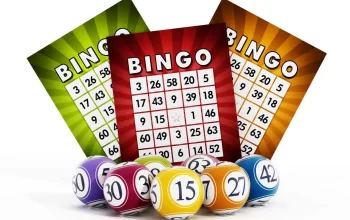Bingo is more than just a game that keeps you entertained. It also fosters social bonds and supports the community through charity work. But before introducing bingo to your organization or local community, it is essential to ponder on its cultural effects.
A survey conducted among elderly bingo players in two rural towns revealed that participation often serves as their only significant social event — relieving them of domestic duties for that time being.
Socialization
The game’s ability to bring together different individuals from all walks of life helps those who find it difficult to mingle with others, bond in an easygoing and stress-free environment — which is especially helpful for individuals living alone or dealing with mobility issues.
Cognitive Stimulation
Playing bingo provides cognitive stimulation — which sharpens quick thinking and mental agility. Consequently, it reduces the risk of Alzheimer’s disease, dementia and other neurological issues.
For instance, older adults are required to hear well amidst fast-paced turns and identify numbers quickly when called out. This helps promote mental alertness among them while mitigating possible risks of cognitive decline.
Community Building
Bingo gives people a great sense of belonging irrespective of age or background, making them feel like they are part of something bigger than themselves. As such, it serves as an effective stress-reliever and mood lifter. The game can be played at home on mobile devices or computers, or in halls – where stair lifts can help people with mobility problems get around with ease (or even wheelchairs).
Numerous interviewees from Fairfield and Bonneauville said that bingo is their sole weekly social activity — particularly older adults who feel detached from society as they age. The activity provides them with a reliable engagement that can change their lives for the better while avoiding future isolation.
Fundraising Potential
Over the years, bingo has helped raise millions for various causes around the world. Many organizations have used this recreational vehicle to create awareness and encourage people to take positive action while having fun.
And in many cases, bingo holds cultural significance that serves as the bedrock of local festivals and celebrations. It strengthens community connections and forges intergenerational bonds. In addition, it helps preserve traditional values — especially in Central American societies.
The highlight of our survey was finding out that bingo gives seniors in rural locations a sense of purpose and independence — ultimately helping them live life to the fullest without becoming socially disconnected or losing internal drive as they age.
Bingo also plays an integral role in their mental health — it can even alleviate anxiety and stress symptoms!
However, bingo is technically considered gambling. Some people who were interviewed said they’ve experienced some form of harm. This finding backs up the bigger picture that gambling harm can bring poverty and trauma to its users. Stakeholders think that if bingo was regulated properly it could be a positive thing to society.





